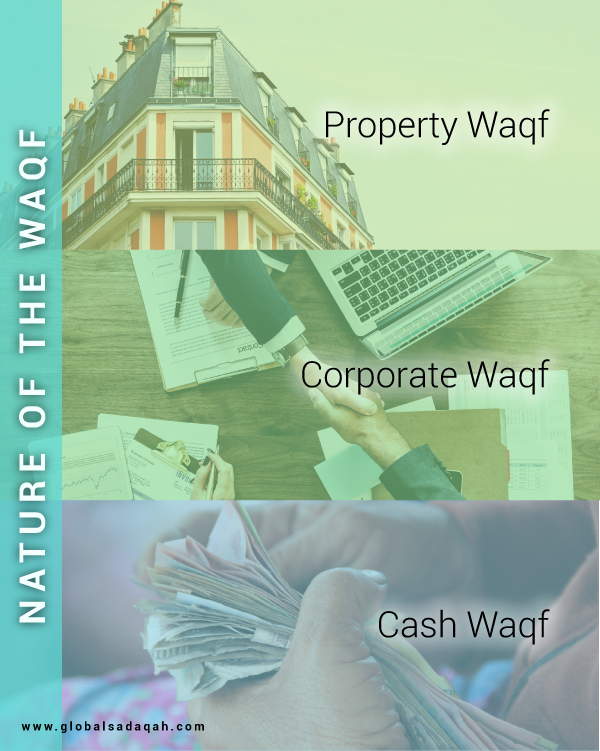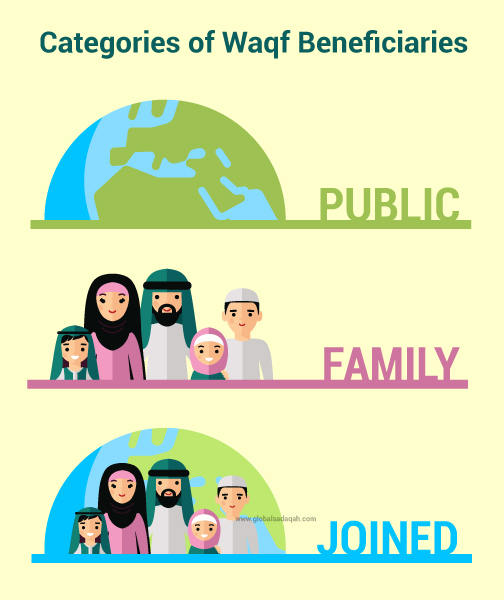Waqf is an endowment made by a Muslim for a religious, educational, or charitable cause. It is an essential tool towards achieving socio-economic development, and if properly implemented, it can play a major role towards reducing unemployment and poverty eradication, eventually contributing towards the socio-economic progress of Muslim communities.
It is a type of institution that creates a sustainable entity, administered by the essential principles of perpetuity, inalienability and irrevocability. It is widely recognised that through proper management of waqf, the existing gap between contemporary Islamic finance and its socioeconomic aspects can be addressed. Through the creation of community assets, the institution of waqf has the potential to create robust not-for-profit entities that may address education, healthcare, and other social needs in the Muslim societies, thus unlocking both its economic potentials and philanthropic objectives.
Types of Waqf
Waqf can be classified into various categories such as nature of the waqf, and the relationship between the donor and the beneficiaries.
Nature of the Waqf:

Property Waqf
A type of waqf where waqf assets (mawqoof) involve physical assets such as mosques, plots of land, houses, hospitals, offices, buildings, and other properties that can benefit the community. The donor cannot reclaim back such waqf assets.
Corporate Waqf
A contemporary type of waqf where waqf assets are in the form of corporate shares of company that are issued and managed by a corporate body such as Islamic banks, takaful companies, Shariah-compliant investment companies, etc.
Cash Waqf
A type of waqf which differs from the ordinary property of waqf in that its original capital consisted purely or partially, of cash.
It is noteworthy to highlight that people often perceive waqf to be associated only with immovable properties and lands for religious and educational purposes. However this misconception is increasingly addressed when Muslim scholars endorse the introduction of more dynamic forms of waqf such as corporate and cash waqf as highlighted above.
Categories of Waqf Beneficiaries:

Public
Waqf supports the welfare of poor and vulnerable people. Historically, most waqf are public and benefit the whole community.
Family
Waqf benefits relatives of the donor or specific individuals. Only if the specified beneficiaries are deceased will the waqf be transferred to benefit the public.
Joined
The donor dedicates a part of the waqf to his family and another part to the public, so that both receive the benefits.
In case of Global Sadaqah crowdfunding platform, the beneficiaries involved are only the public as the platform aims to benefit the general society.
Concluding Remarks
Overall waqf has played and in many cases, continues to play an essential role in the advancement of socio-economic well-being of the Muslim community. Especially with the recent introduction of new, innovative waqf models such as corporate and cash waqf mainly to address the limitations of property waqf, this has further served as a catalyst in the overall growth of the Muslim community. Both corporate and cash waqf offer great potential for socio-economic development, namely poverty eradication, employment opportunities, microfinance empowerment and infrastructure development. Finally, realising the huge potential, dynamism and flexibility offered through waqf, authorities should assume a central role in creating a facilitative environment for the overall development of waqf. More importantly, continuous positive marketing and campaigns are necessary to increase public awareness and understanding of the great potential that waqf offers. One such platform is the Global Sadaqah crowdfunding platform.

